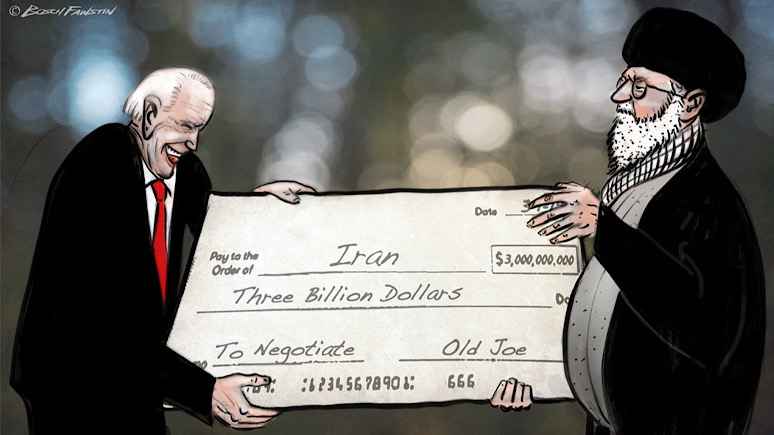Anniversary of a Shameful U.S. Surrender—the Cuban Missile Crisis – By Humberto Fontova (frontpagemag.com) / Oct 25 2018
How JFK pulled defeat from the jaws of victory.
Those who think “Fake News” started with Trump’s term and the media’s “slobbering love affair” with a U.S. president started during Obama’s should have seen John F. Kennedy’s term.
Imagine Obama’s term with no Fox News, internet or talk radio. That’s about what JFK enjoyed. And tragically, the fairy tales Kennedy’s court scribes (with their media cohorts of the time) concocted about JFK’s Pattonesque handling of the Cuban Missile Crisis prevail in media/academic circles even today.
In fact, that Khrushchev swept the floor with cowed Kennedy during the Cuban Missile Crisis was mainstream conservative conclusion throughout much of the Cold War. Richard Nixon and Barry Goldwater, for instance, represented opposite poles of the Republican establishment of their time.
“We locked Castro’s communism into Latin America and threw away the key to its removal,” growled Barry Goldwater about the JFK’s Missile Crisis “solution.”
“Kennedy pulled defeat out of the jaws of victory,” complained Richard Nixon. “Then gave the Soviets squatters rights in our backyard.”
Generals Curtis Le May and Maxwell Taylor represented opposite poles of the military establishment.
“The biggest defeat in our nation’s history!” bellowed Air Force chief Curtis Lemay while whacking his fist on his desk upon learning the details of the deal.
“We missed the big boat,” complained Gen. Maxwell Taylor after learning of same.
“We’ve been had!” yelled then Navy chief George Anderson upon hearing on October 28, 1962, how JFK “solved” the missile crisis. Adm. Anderson was the man in charge of the very “blockade” against Cuba.
“It’s a public relations fable that Khrushchev quailed before Kennedy,” wrote Alexander Haig. “The legend of the eyeball to eyeball confrontation invented by Kennedy’s men paid a handsome political dividend. But the Kennedy-Khrushchev deal was a deplorable error resulting in political havoc and human suffering through the America’s.”
William Buckley’s National Review devoted several issues to exposing and denouncing Kennedy’s appeasement. The magazine’s popular “The Third World War” column by James Burnham roundly condemned Kennedy’s Missile Crisis solution as “America’s Defeat.”
Even Democratic luminary Dean Acheson despaired: “This nation lacks leadership,” he grumbled about the famous “Ex-Comm meetings” so glorified in the movie Thirteen Days. “The meetings were repetitive and without direction. Most members of Kennedy’s team had no military or diplomatic experience whatsoever. The sessions were a waste of time.”
But not for the Soviets. “We ended up getting exactly what we’d wanted all along,” snickered Nikita Khrushchev in his diaries, “security for Fidel Castro’s regime and American missiles removed from Turkey and Italy. Until today the U.S. has complied with her promise not to interfere with Castro and not to allow anyone else to interfere with Castro. After Kennedy’s death, his successor Lyndon Johnson assured us that he would keep the promise not to invade Cuba.”
In fact Khrushchev prepared to yank the missiles before any “bullying” by Kennedy. “What!” Khrushchev gasped on Oct. 28th 1962, as recalled by his son Sergei. “Is he (Fidel Castro) proposing that we start a nuclear war? “But that is insane!…Remove them (our missiles) as soon as possible! Before it’s too late. Before something terrible happens!” commanded the Soviet premier.
So much for the gallant Knights of Camelot forcing the Russians’ retreat. In fact, the Castro brothers and Che Guevara’s genocidal lust is what prompted the Butcher of Budapest to yank the missiles from their reach.
Considering the U.S. nuclear superiority over the Soviets at the time of the (so-called) Missile Crisis (five thousand nuclear warheads for us, three hundred for them) it’s hard to imagine a President Nixon — much less Reagan — quaking in front of Khrushchev’s transparent ruse a la Kennedy.
The genuine threat came –not from Moscow—but from the Castros and Che. “If the missiles had remained, we would have fired them against the very heart of the U.S., including New York. The victory of socialism is well worth millions of atomic victims.” (Che Guevara to Sam Russell of The London Daily Worker, November 1962.)
“Of course I knew the missiles were nuclear- armed,” responded Fidel Castro to Robert McNamara during a meeting in 1992. “That’s precisely why I urged Khrushchev to launch them. And of course Cuba would have been utterly destroyed in the exchange.”
Castro’s regime’s was granted new status. Let’s call it MAP, or Mutually-Assured-Protection. Cuban freedom-fighters working from south Florida were suddenly rounded up for “violating U.S. neutrality laws.” Some of these bewildered men were jailed, others “quarantined,” prevented from leaving Dade County. The Coast Guard in Florida got 12 new boats and seven new planes to make sure Castro remained unmolested.
JFK’s Missile Crisis “solution” also pledged that he immediately pull the rug out from under Cuba’s in-house freedom fighters. Raul Castro himself admitted that at the time of the Missile Crisis his troops and their Soviet advisors were up against 179 different “bands of bandits” as he labeled the thousands of Cuban anti-Communist rebels then battling savagely and virtually alone in Cuba’s countryside, with small arms shipments from their compatriots in south Florida as their only lifeline.
Kennedy’s deal with Khrushchev cut this lifeline. This ferocious guerrilla war, waged 90 miles from America’s shores, might have taken place on the planet Pluto for all you’ll read about it in the mainstream media and all you’ll learn about it from Kennedy’s court scribes, who scribbled Kennedy’s Missile-Crisis “victory.” To get an idea of the odds faced by those betrayed Cuban rebels, the desperation of their battle and the damage they wrought, you might revisit Tony Montana during the last 15 minutes of “Scarface.”




















